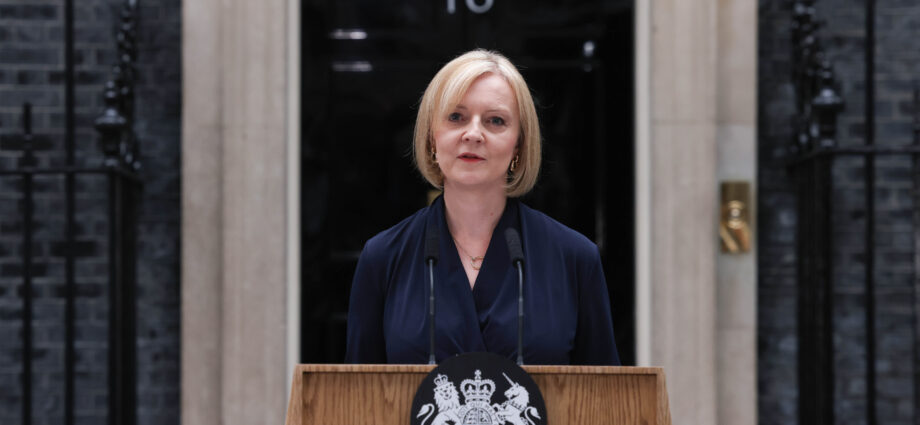
After 44 days in office, Liz Truss is the shortest-serving prime minister in UK history
by Belinda Teoh
October 21, 2022
In October, the UK is going to have a third prime minister of the year, an unprecedented crisis in British politics – and the quickest turnover of power we have seen in modern times.
According to Truss, there will be a leadership election next week, and she will remain prime minister until a successor is appointed by King Charles III.
The PM said her successor will be elected in a Tory leadership contest.
Early reports from the Times suggest Boris Johnson is in the Tory leadership contest despite his forced resignation prior to Truss’ appointment.
Sir Graham Brady says he expects a leadership result by Friday next week, the 1922 Committee chairman says he expects Tory members to be included in the leadership contest.
In a brief speech outside Downing Street, Truss said the Conservative Party had elected her on a mandate to cut taxes and boost economic growth.
But given the situation, Truss said: “I recognise that I cannot deliver the mandate on which I was elected by the Conservative Party.”
Trouble began when her first Chancellor, Kwasi Kwarteng spooked the financial markets with his £45bn tax cuts calling it a “mini-budget” on 23 September.
This was widely blamed for causing huge economic problems, almost all of it has now been reversed and Kwarteng was sacked as chancellor and appointed Jeremy Hunt as his successor as she attempted to calm the markets.
Chancellor Jeremy Hunt has confirmed that he will not stand to be the next Conservative leader and UK prime minister.
Truss had been meeting the chairman of the 1922 Committee of the backbench MPs as more Tories called for her to quit. More than a dozen Conservative MPs have now publicly called on her to step down.
In her speech, Ms Truss said she entered “office at a time of great economic and international instability”, as war rages in Ukraine and living costs skyrocket.
Since then, Conservative dismay has given way to widespread rage inside the parliamentary party.
Labour leader Keir Starmer, Ed Davey, has called a general election ‘immediately’.
At Prime Minister’s Questions on Wednesday, Ms Truss insisted she was a “fighter, not a quitter” after Labour leader Sir Keir Starmer asked her why she had not resigned.
But more instability followed when Suella Braverman quit as home secretary and a vote on fracking fell into disarray, with some Tory MPs accused of bullying.
There has been a muted response on the markets after Liz Truss announced her resignation. The pound rose initially in the immediate aftermath of the statement before settling back around $1.12. Before she delivered her statement, one analyst said the markets were “watching in a kind of stunned, open-mouthed horror” at political events.
Whether the Conservative Party can coalesce around a new leader and whether the party can avoid a general election we will never know until next week.
Commons leader and former Tory party leadership contender Penny Mordaunt says she will “keep calm and carry on” and encourages others to do the same.
Subscribe to our newsletter.
Despite losing to Truss in the Conservative leadership election that led to her appointment, former Chancellor Rishi Sunak may now be in the running to take over as prime minister, considered an early front-runner by many.
This article was originally published on IMPAKTER. Read the original article.



